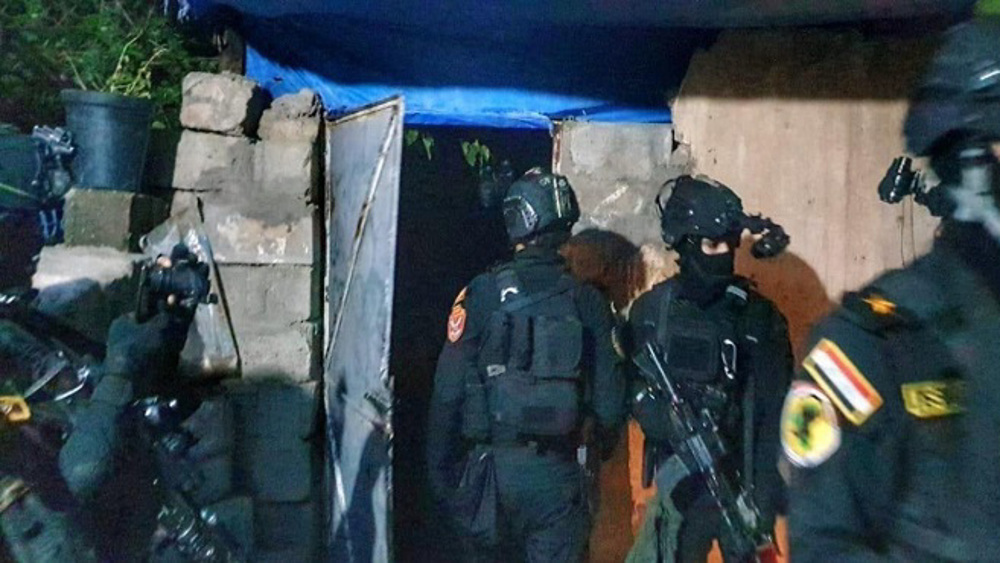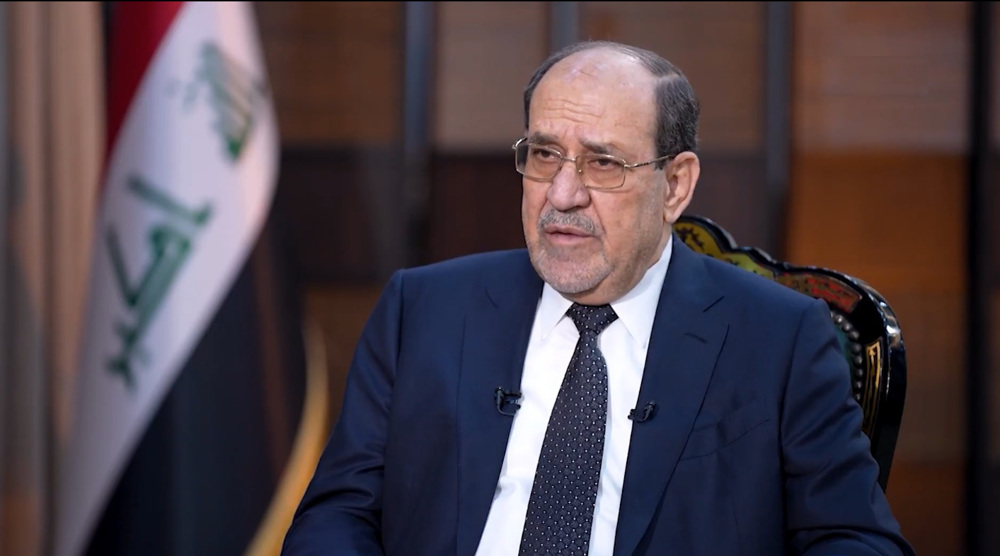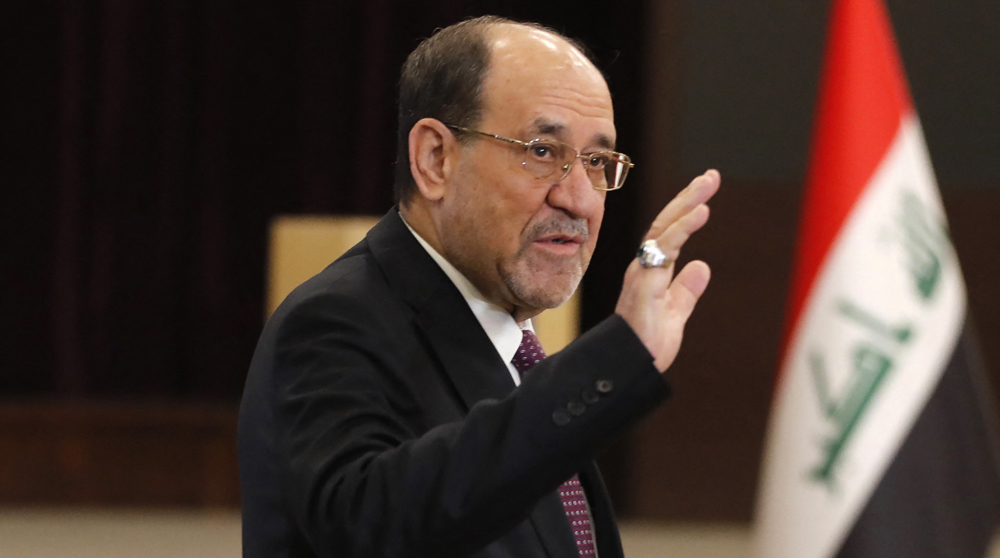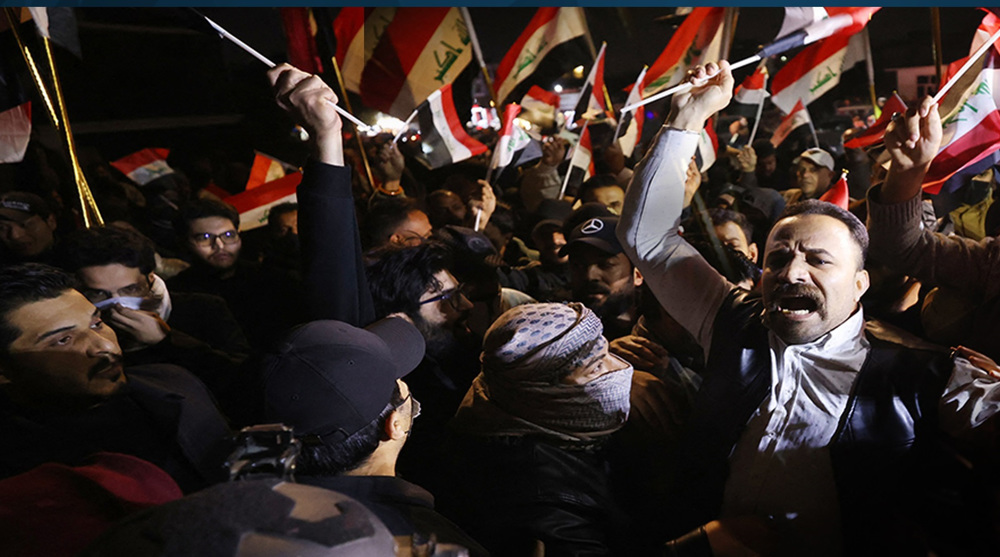US suspected of role after headquarters of Kata'ib Hezbollah raided in Baghdad
The headquarters of an anti-terror group within the Popular Mobilization Units (PMU), better known as Hashd al-Sha’abi, have come under attack in Baghdad, raising suspicions about the US role in Iraq.
More than a dozen members of Kata'ib Hezbollah were reportedly detained during the raid in southern Baghdad in the early hours of Friday. Initial reports said several commanders of the anti-US group, which is integrated into Iraq's security forces, were among those arrested.
Their fate remains unclear, with some unnamed officials saying they are in the custody of Iraqi security services. Other informed sources said some the detainees had been released.
An Iraqi official initially told Reuters news agency that at least three of the group's detained commanders had been transferred over to the US military.
A number of local media outlets also reported that American forces were involved in the raid.
One tweet by an PMU member claimed that Prime Minister Mustafa al-Kadhimi had apologized to the anti-terror group's head Hadi al-Ameri over the incident.
The Arabic-language al-Sumaria television network, citing an unnamed security source, reported on Friday that all 13 PMU members who had been detained are now free.
Back on April 6, a member of the Iraqi parliament's security and defense committee warned against the ulterior motives behind the redeployment of US troops to various military sites across the Arab country, saying Washington was drawing up plans to target PMU commanders.
“The withdrawal of US forces from a number of military bases does not come in line with the parliamentary resolution calling on the government to push out foreign troops from the country. It is rather part of redeployment plans for American forces inside Iraq,” Karim al-Muhammadawi told Arabic-language al-Masalah news agency in an exclusive interview at the time.
He added, “The real intention behind the redeployment of US soldiers in Iraq remains unknown. But it is assumed to be related to the deployment of the forces to fortified bases, especially after the installation of Patriot missile systems there. The US is purportedly seeking to launch precision strikes against Hashd al-Sha’abi positions and intends to assassinate commanders associated with them.”
On March 27, the New York Times newspaper reported that the Pentagon had ordered a secret directive, which called on US military commanders to prepare a campaign against Kata'ib Hezbollah, which is part of Hashd al-Sha’abi.
But the United States’ top commander in Iraq had warned that such a campaign could be bloody and counterproductive.
Lieutenant General Robert P. White wrote in a blunt memo that a new military campaign would also require that thousands more American troops be sent to Iraq.
Hashd al-Sha’abi fighters have played a major role in the liberation of areas held by Daesh terrorists ever since the Takfiri group launched an offensive in the country, overrunning vast swathes in lightning attacks.
In November 2016, the Iraqi parliament voted to integrate the PMU, which was formed shortly after the emergence of Daesh in Iraq in 2014, into the military.
The popular group, however, is a thorn in the side of the United States which is widely believed to be managing an array of militant groups, including Daesh, to advance its Israel-centric agenda in the region.
In 2009, the US State Department blacklisted Kata'ib Hezbollah and imposed sanctions on the group which has been the frequent target of American airstrikes in Iraq.
Iraqi lawmakers unanimously approved a bill on January 5, demanding the withdrawal of all foreign troops following the US assassination of Lieutenant General Qassem Soleimani, the commander of the Quds Force of Iran's Islamic Revolution Guards Corps, along with Abu Mahdi al-Muhandis, the deputy head of Iraq's PMU, and their companions.
Later on January 9, former Iraqi prime minister, Adel Abdul-Mahdi, called on the United States to dispatch a delegation to Baghdad tasked with formulating a mechanism for the move.
The 78-year-old politician said Iraq rejected any violation of its sovereignty, particularly the US military's violation of Iraqi airspace in the assassination airstrike.
The US has refused to withdraw its troops, with President Donald Trump balking at the idea with the threat to seize Iraq's oil money held in bank accounts in the United States.
‘Bloodbath in newsroom’: Bezos-owned Washington Post launches sweeping layoffs
Iran, US to hold nuclear talks in Muscat on Friday: FM
UN experts decry Israeli bill allowing execution of Palestinians
Epstein–Barak recording exposes multimillion-dollar fees paid to Tony Blair
UK Palestine Action activists acquitted of burglary in Elbit factory raid
Oman to broker fresh round of Iran-US talks on February 6: Reports
VIDEO | Iran unveils space technology milestones
Israel to shut water, electricity at UNRWA facilities in occupied territories













 This makes it easy to access the Press TV website
This makes it easy to access the Press TV website